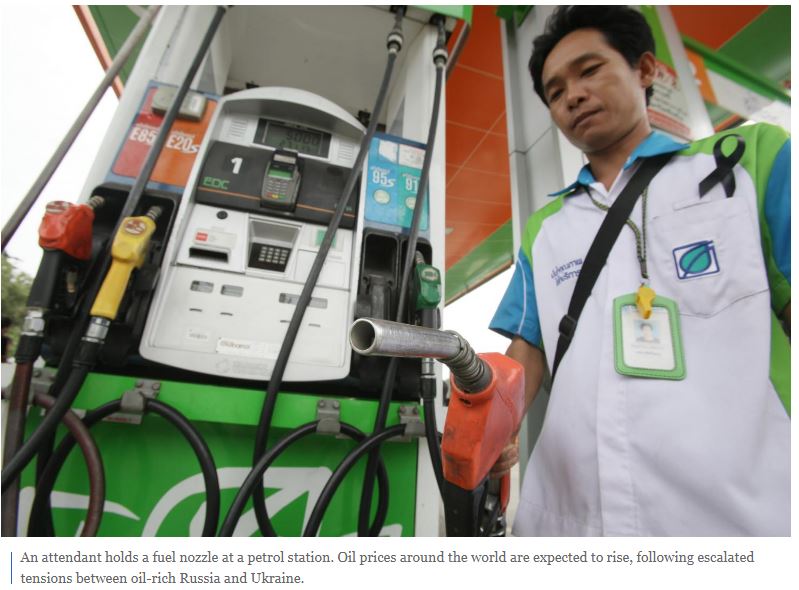Thailand: Analysts back cut in oil excise tax
Energy policymakers need to implement various measures, including a cut in the oil excise tax, to make fuel prices bearable for businesses and households, according to energy analysts.
Global oil prices look set to soar, especially following continued tension between oil-rich Russia and Ukraine. The dispute shows no signs of abating through political means as the US opted to send troops to Poland, Germany and Romania amid growing concern over a Russian invasion of Ukraine, according to media reports.
Poland and Romania border Ukraine, which has Russian troops amassed on the other side of the border with its neighbour.
Disputes among oil-rich countries in other regions are also a concern.
Praipol Koomsap, a Thammasat University economist and a former assistant to the energy minister, said if these disputes escalate out of control, it would affect global oil supply and drive prices up to US$100 a barrel.
The Thai government has capped diesel prices at below 30 baht per litre using the Oil Fund via a price subsidy.
The fund’s balance sheet is in the red at present with a loss of 14 billion baht.
The Oil Fuel Fund Office earlier requested a loan from commercial banks, but by law it is not allowed to acquire more than 20 billion baht.
Authorities may eventually need to resort to reducing the excise tax on gasohol — a mix of gasoline and ethanol — and diesel to 2 baht a litre, down from almost 6 baht a litre at present.
The excise tax on unleaded gasoline and liquefied petroleum gas (LPG), which is used as cooking gas, stands at 6.5 baht a litre and 2.17 baht a kilogramme, respectively.
“The state assistance should also cover gasohol users, mostly drivers of personal cars, not just truck, bus and pickup drivers who depend on diesel,” said Mr Praipol.
He agreed with the Energy Ministry’s latest measure to reduce the proportion of palm-oil derived methyl ester in diesel from 7% to 5% to ease the cost impact of using expensive methyl ester.
Rosana Tositrakul, a former Bangkok senator, supports an excise tax cut as it would help reduce people’s financial burden.
People keep contributing to the Oil Fund through oil purchases, even after global oil prices decrease, so a levy reduction would help them more easily cope with living costs, she said.
“The tax collection should be fair for everyone,” said Mrs Rosana.
“The tax is only 0.2 baht a litre on jet fuel, which is much lower than diesel and LPG.”
Source: https://www.bangkokpost.com/business/2259171/analysts-back-cut-in-oil-excise-tax


 English
English




